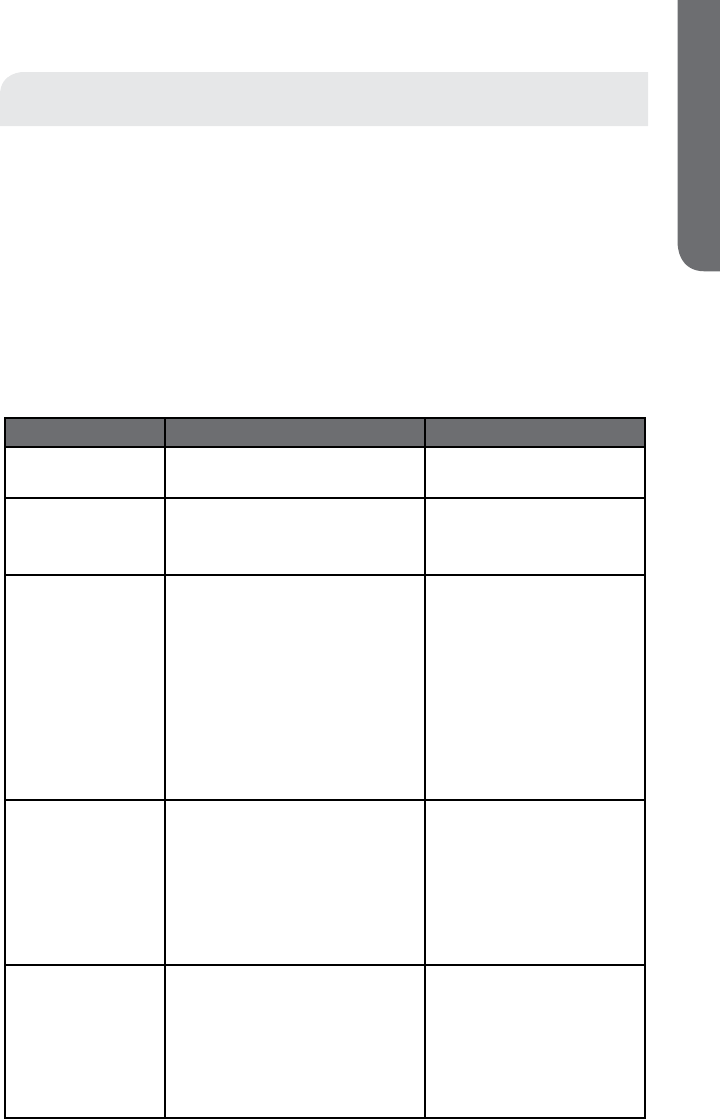
ENGLISH
29
TROUBLE POSSIBLE CAUSE POSSIBLE REMEDY
Washer/Dryer does
not start
The appliance is not properly
plugged in.
Insert the plug into the
power socket securely.
The wash/dry cycle
does not start
A. The door has not been closed
properly.
B. The delay start has been selected.
A. Close the door and try it
again.
B. Cancel the delay start
The washer does
not take in water
A. The inlet hose is not connected
to the tap.
B. The water tap has not been
opened.
C. The faucet or valve may need to
be open more fully.
D. There is no water supply in the
house or the water pressure is
too low.
A. See "installation" (p12-13)
B. Open the water tap.
C. Make sure water hoses
are not kinked, twisted, or
tangled.
D. Check another faucet in
the house to make sure
that household water
pressure is adequate.
There is water on
the floor
A.
The water leakage could be caused
by an improperly connected drain
hose or water hose.
B. You may have a clogged or slow
draining sink or standpipe.
C. You may have used incorrect or
too much detergent
A. Check all connections.
B. Check plumbing or consult
a professional plumber.
C. Make sure to use HE (High
Efficiency) detergent only.
The water will not
drain from the
washer
A. This could be caused by your
drain hose set up. The drain
hose support bracket should
be looped over a sink or into a
standpipe that is between 2'6"
and 3'3" high.
B. Button trap may be full
A. Make sure the end of the
hose is not immersed in
water.
B. Check to see that the
button trap is clean and
dust free.
NORMAL OPERATING SOUNDS
The following sounds are normally heard during the operation of the washer:
• Tumbling sounds: This is normal as the heavy wet clothes in the washer are
continuously being tossed around.
• Air rushing noise: This happens when the washer tub spins at a very high RPM.
• Wash and rinse cycles going on and off will also make clicking sounds as well as
spraying and water splashing sound.
• Drain pump operational sound, when dirty water is being drained.
TROUBLESHOOTING
TROUBLESHOOTING


















